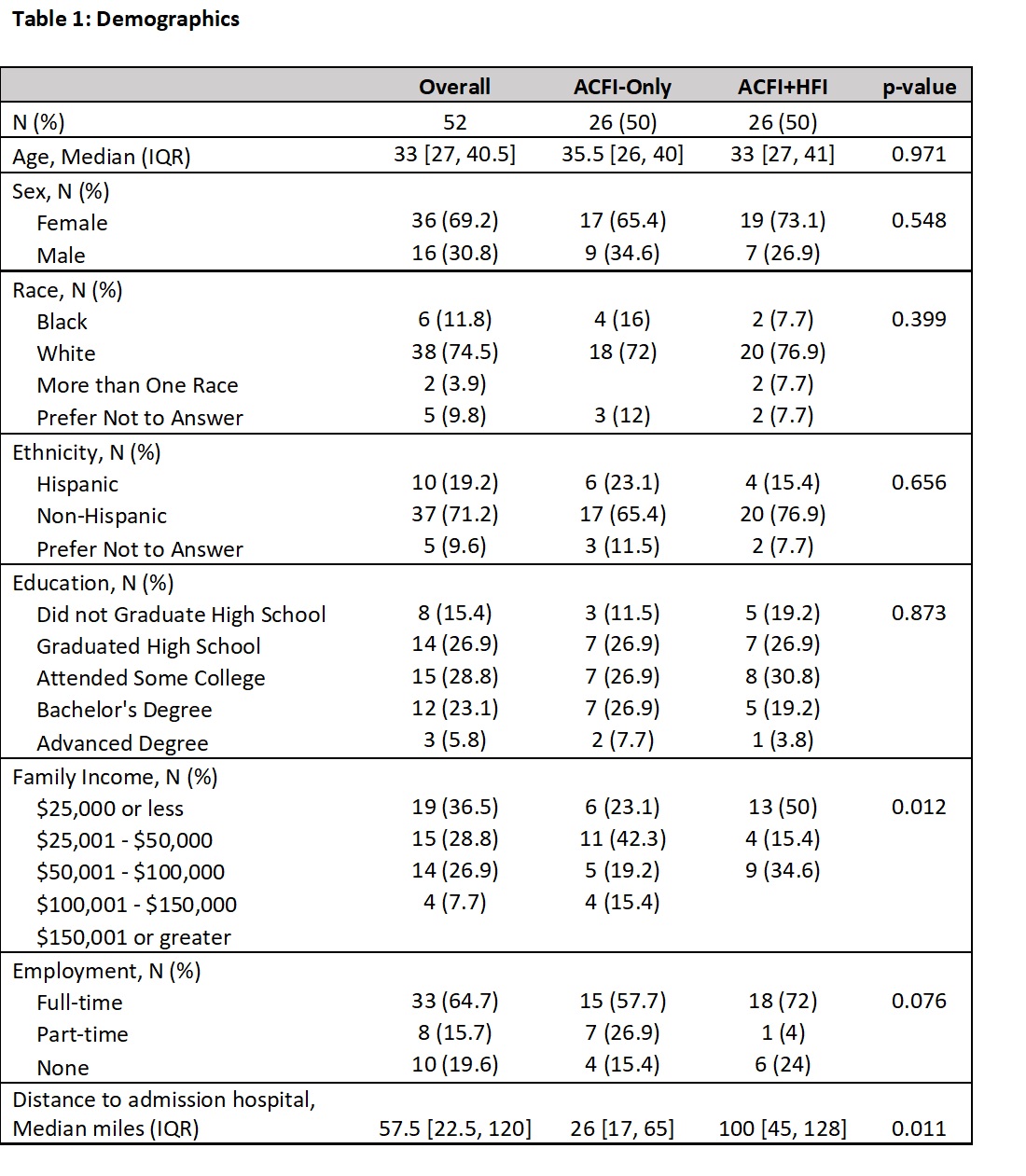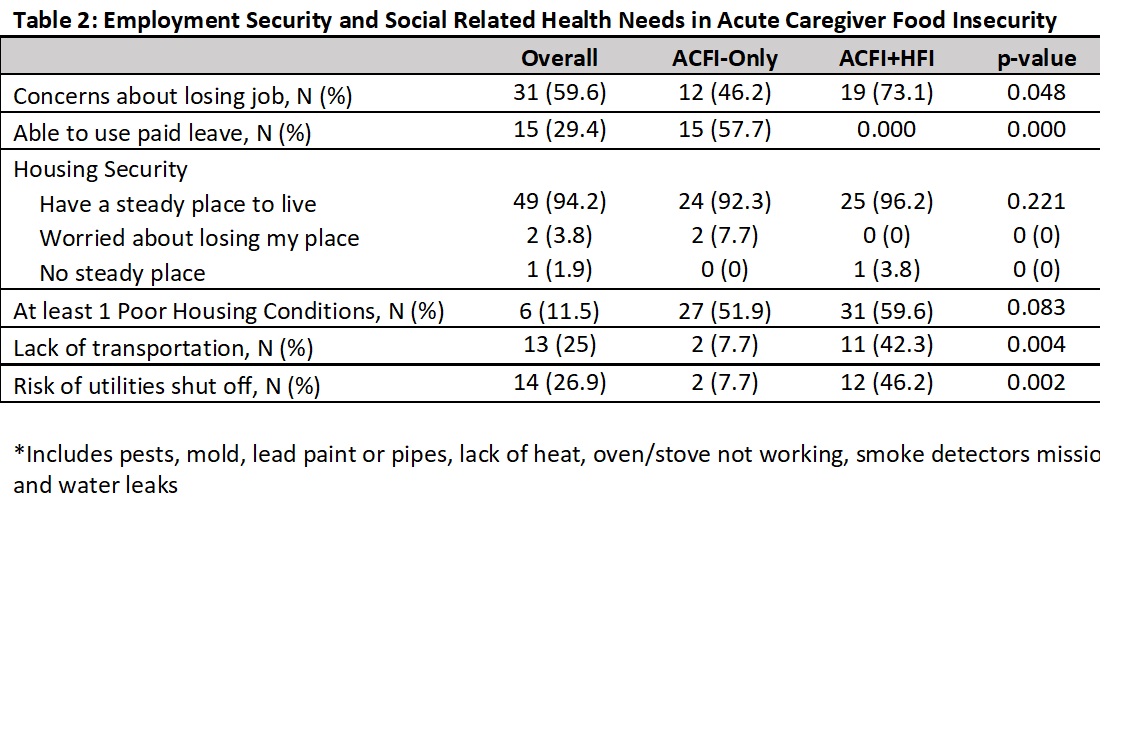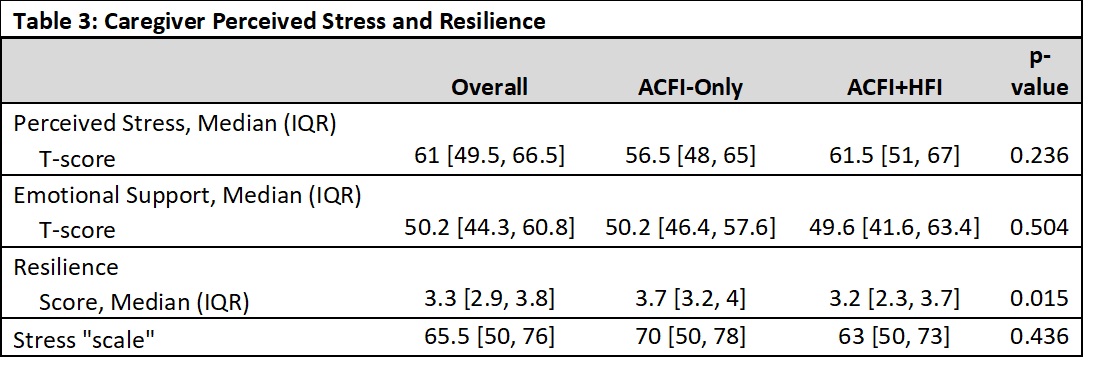Health Equity/Social Determinants of Health
Session: Health Equity/Social Determinants of Health 8
318 - Perceived Stress and Social Related Health Needs Among Caregivers of Hospitalized Children Experiencing Acute Caregiver Food Insecurity
Sunday, May 5, 2024
3:30 PM - 6:00 PM ET
Poster Number: 318
Publication Number: 318.1937
Publication Number: 318.1937

Laura Plencner, MD
Associate Professor of Pediatrics
Children's Mercy Kansas City
Prairie Village, Kansas, United States
Presenting Author(s)
Background: Acute Caregiver Food Insecurity (ACFI) occurs when a caregiver skips meals during their child’s hospitalization due to financial constraints and has been associated with increased caregiver stress. Prior work describes an incomplete overlap of ACFI and pre-hospitalization household food insecurity (HFI) and factors associated with ACFI. However, no studies have compared caregivers experiencing ACFI alone and with both ACFI and preexisting HFI.
Objective: Examine differences in perceived stress and health-related social needs in caregivers with ACFI based on pre-hospitalization HFI status.
Design/Methods: We conducted a prospective cross-sectional survey study enrolling a random sample of caregivers of hospitalized children between 8/31/2021 and 12/2/2022 at a single children’s hospital. Analyses were limited to caregivers endorsing ACFI. Our main outcomes were other health-related social needs (e.g., housing, utilities, transportation, and employment insecurities) and caregiver stress and resilience. Caregiver stress was measured through Cohen’s 10-item Perceived Stress Scale, including sub-scales measuring stress and emotional support, and resilience through 6-item Brief Resilience Scale. Our main predictors were self-reported ACFI with HFI (“ACFI+HFI”) and ACFI without HFI (“ACFI-only”). The X2 and Wilcoxon Rank-Sum tests were used to compare caregivers with ACFI+HFI to caregivers with ACFI-only.
Results: Of 170 survey participants, 52 (30.7%) had ACFI, of which 50% (n=26) also endorsed HFI. Caregivers with ACFI+HFI had lower incomes (≤$25,000, 50% vs 23.1%, p=0.012) and lived farther from the hospital (median 100mi [IQR 45, 128] vs 26mi [IQR 17, 65], p=0.01) (Table 1). The percentage of caregivers with transportation and utility insecurity was also greater among ACFI+HFI caregivers (transportation: 42.3% vs. 7.7%, p=.004; utility: 46.2% vs. 7.7%, p=0.002) (Table 2). Although overall stress was similar between groups, resilience was lower among ACFI+HFI caregivers (median 3.2 [IQR 2.3, 3.7]) vs. median 3.7 [IQR 3.2, 4.0], p=.015) (Table 3).
Conclusion(s): ACFI is common and may impact caregivers regardless of whether preexisting HFI is present. ACFI+HFI caregivers had lower income, were farther from home during the hospitalization, and had more health-related social needs. While the caregiver groups had similar stress levels, ACFI+HFI caregivers had lower resilience. Our findings suggest that caregivers should be assessed for ACFI and HFI during their child’s hospitalization, and that caregivers who screen positive to both may require additional support.



